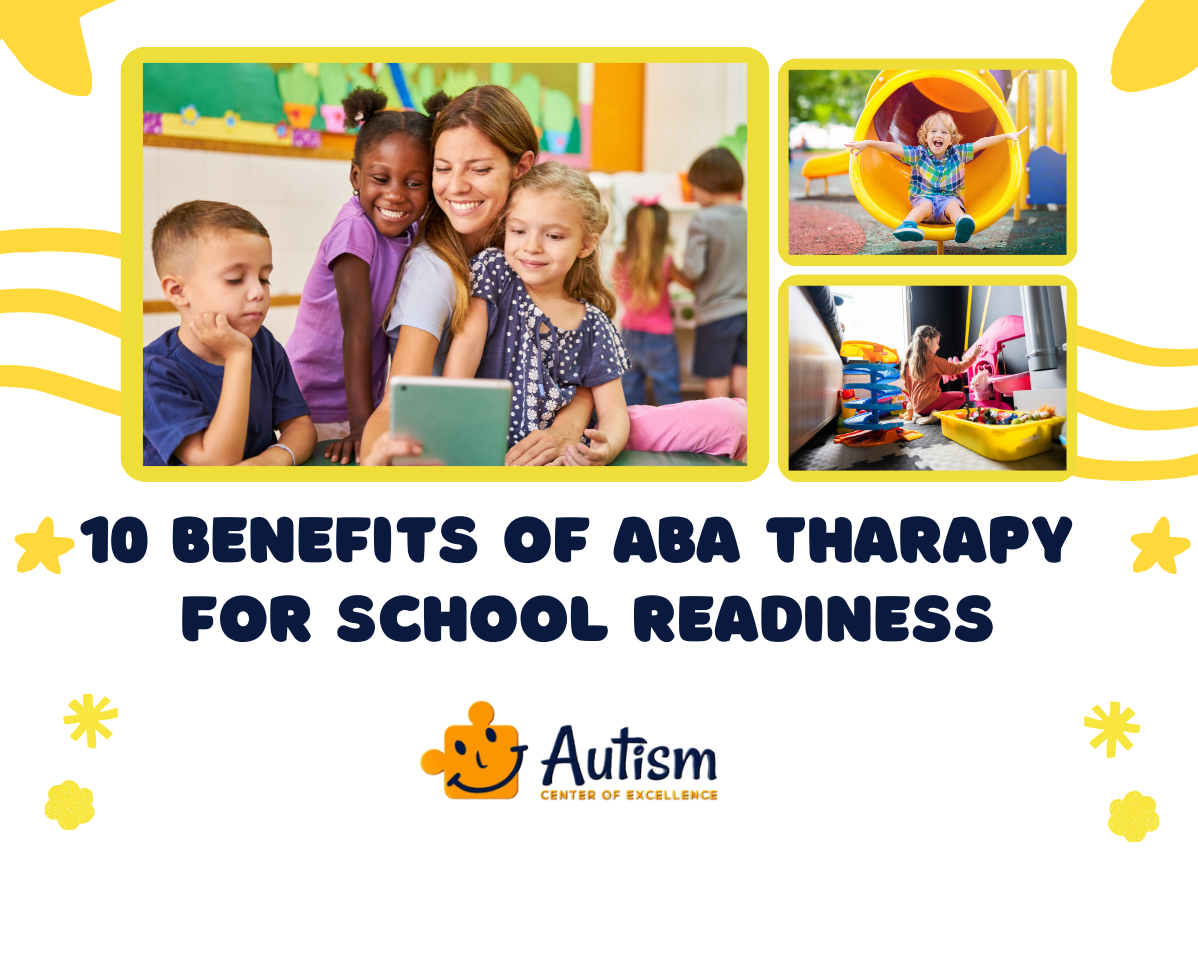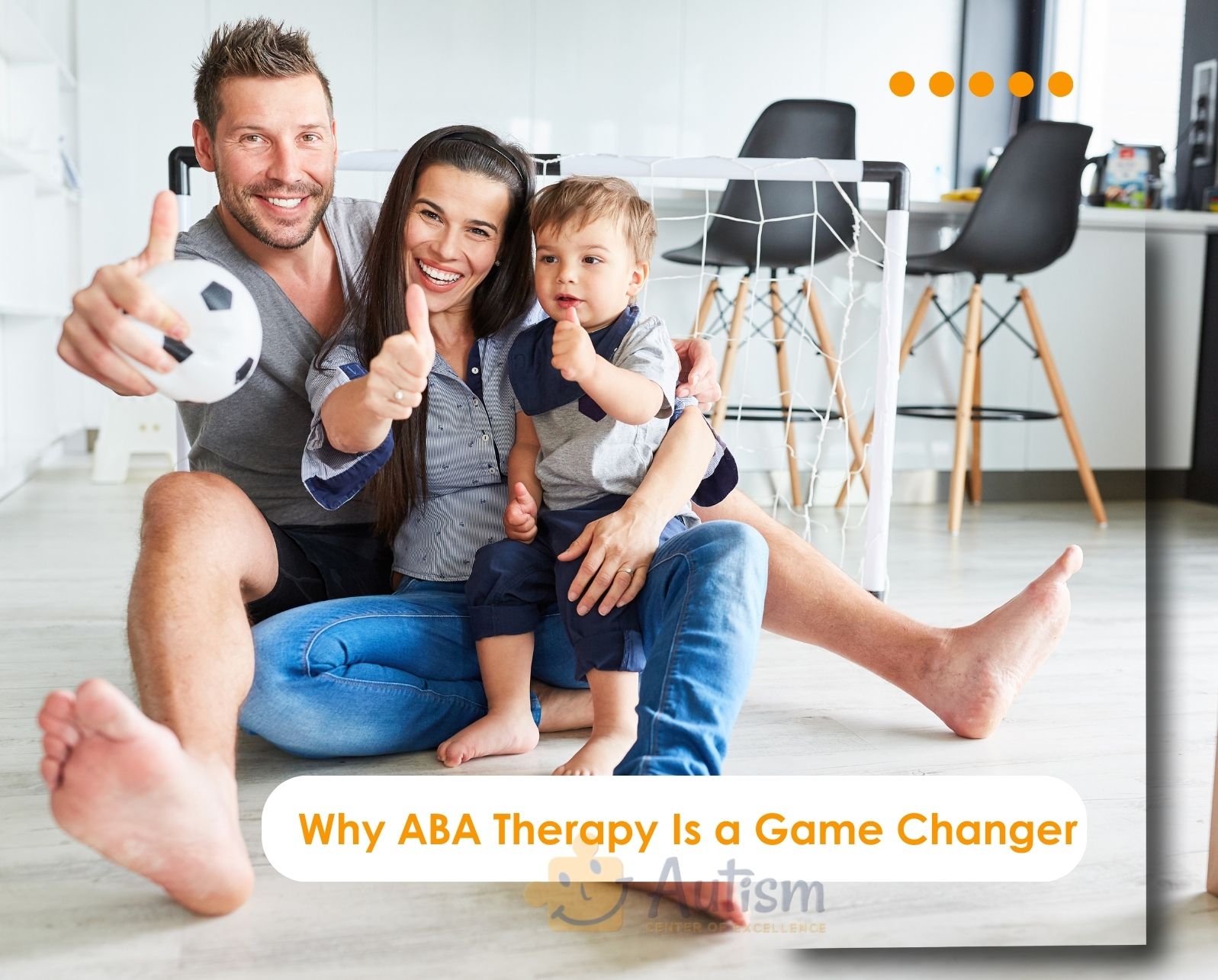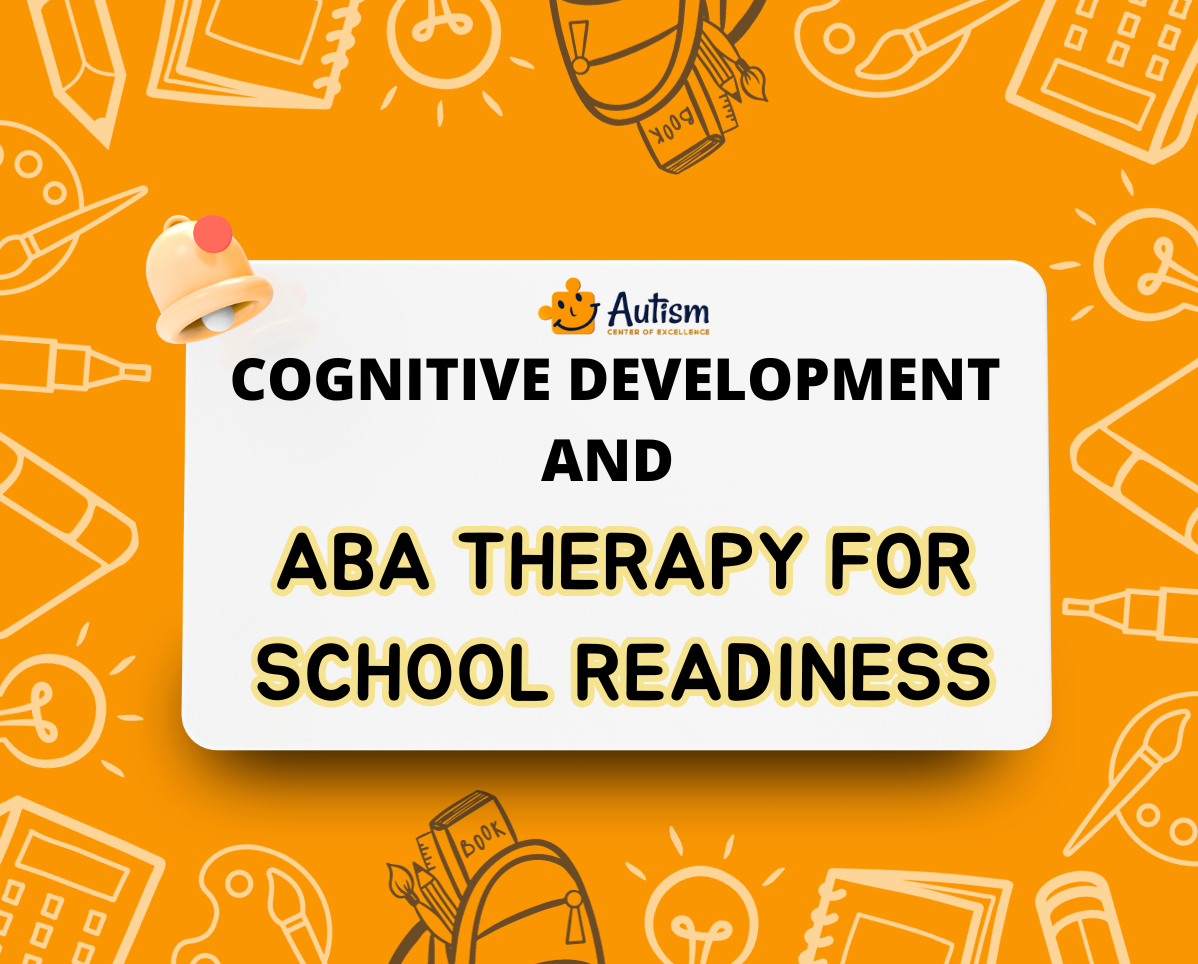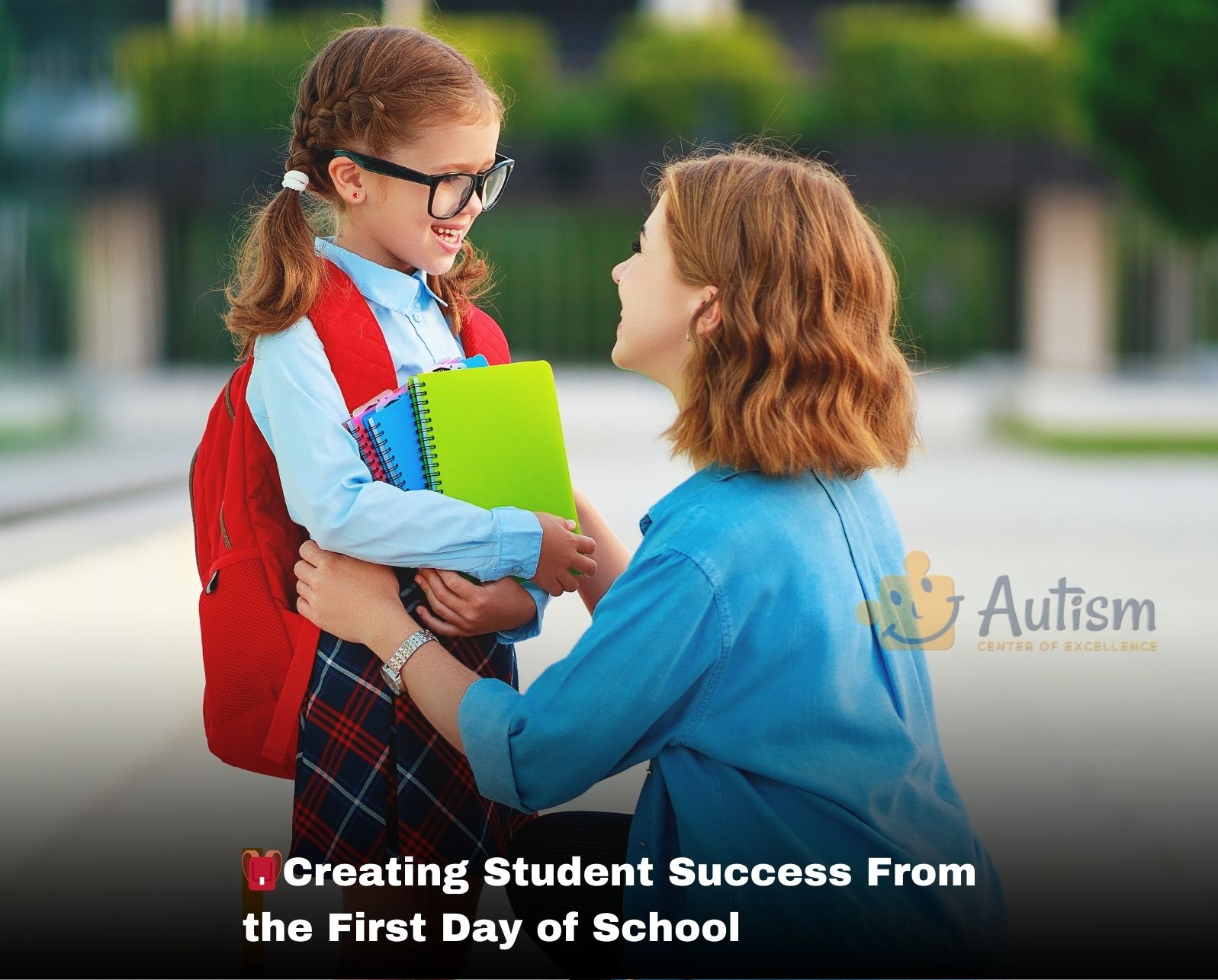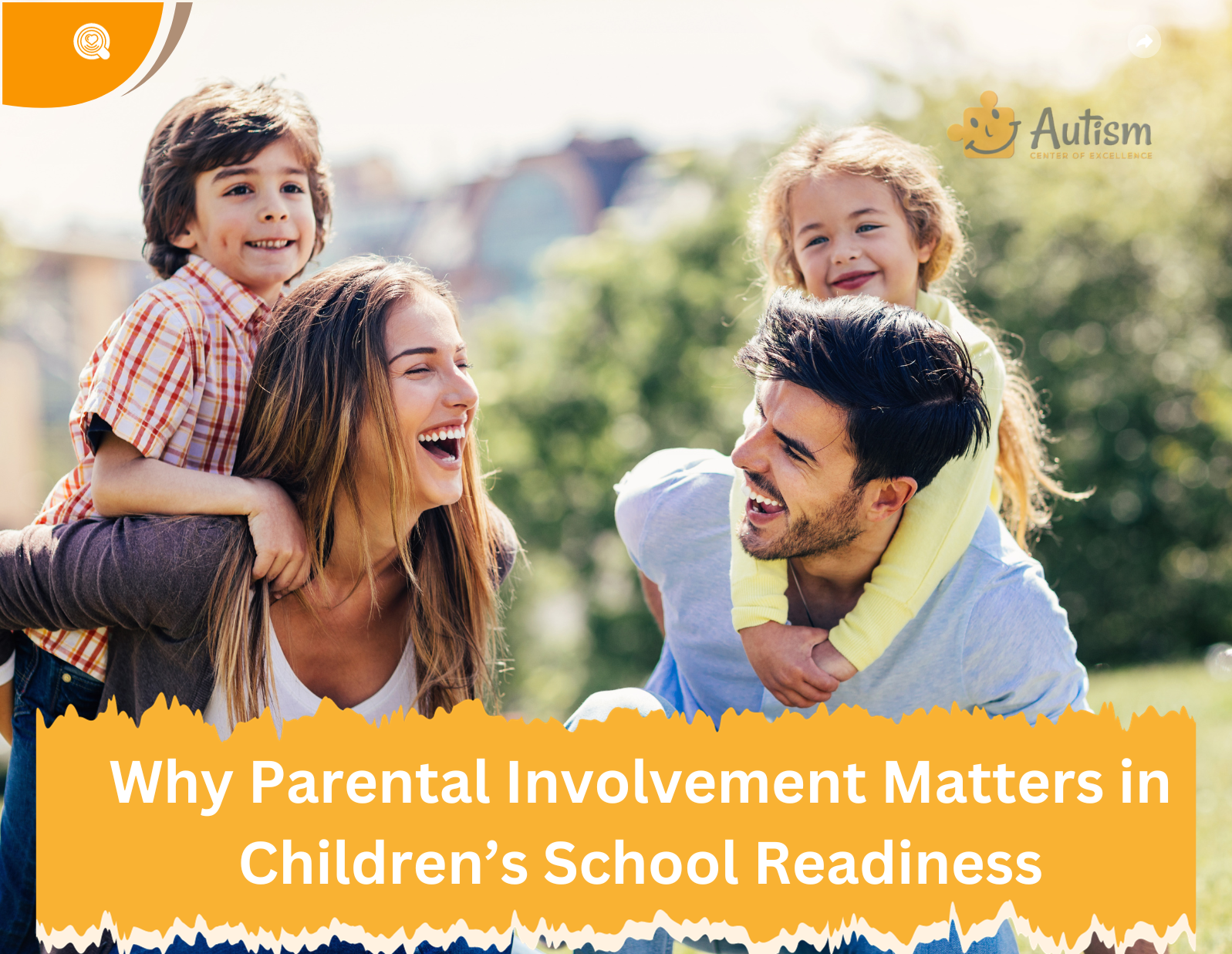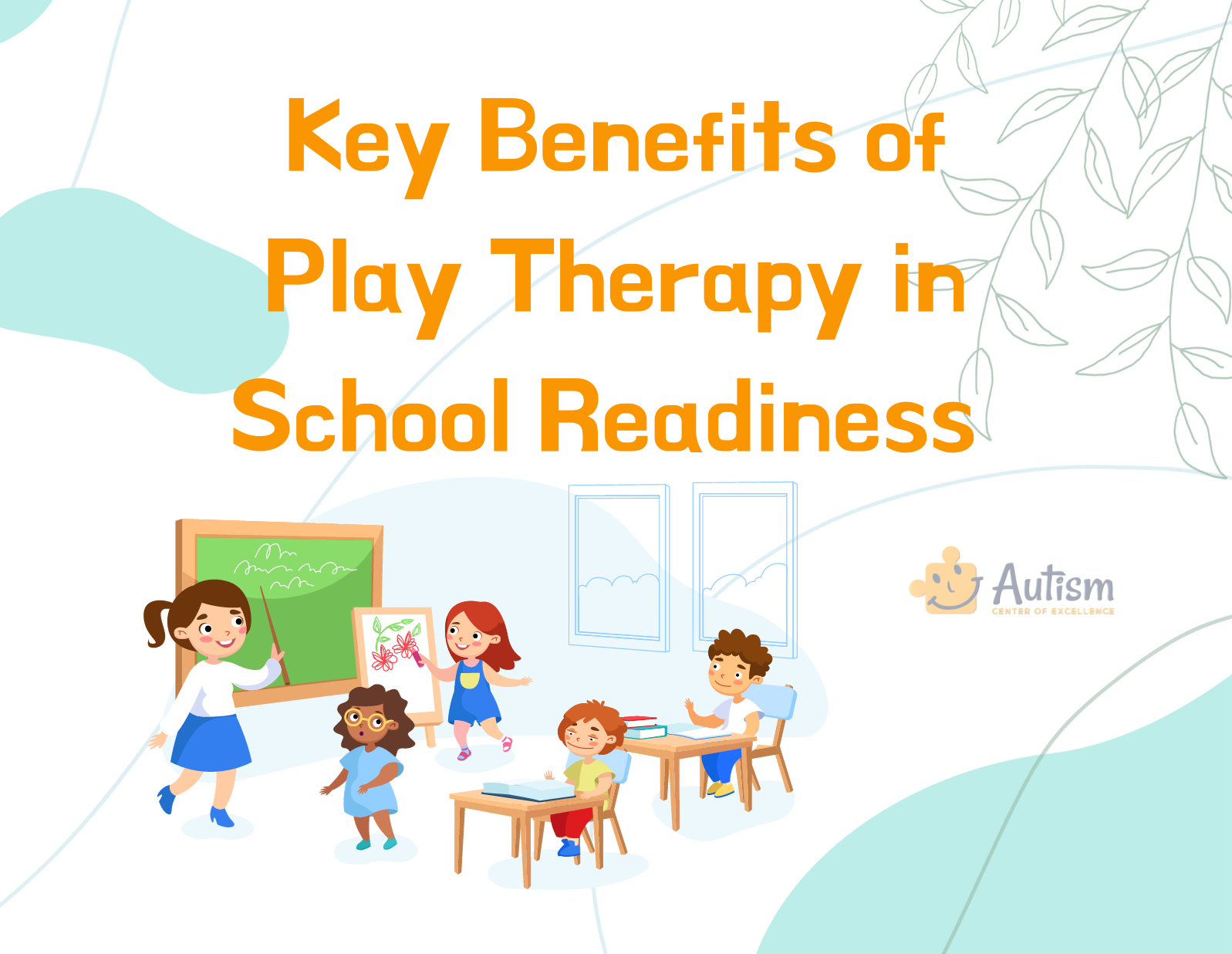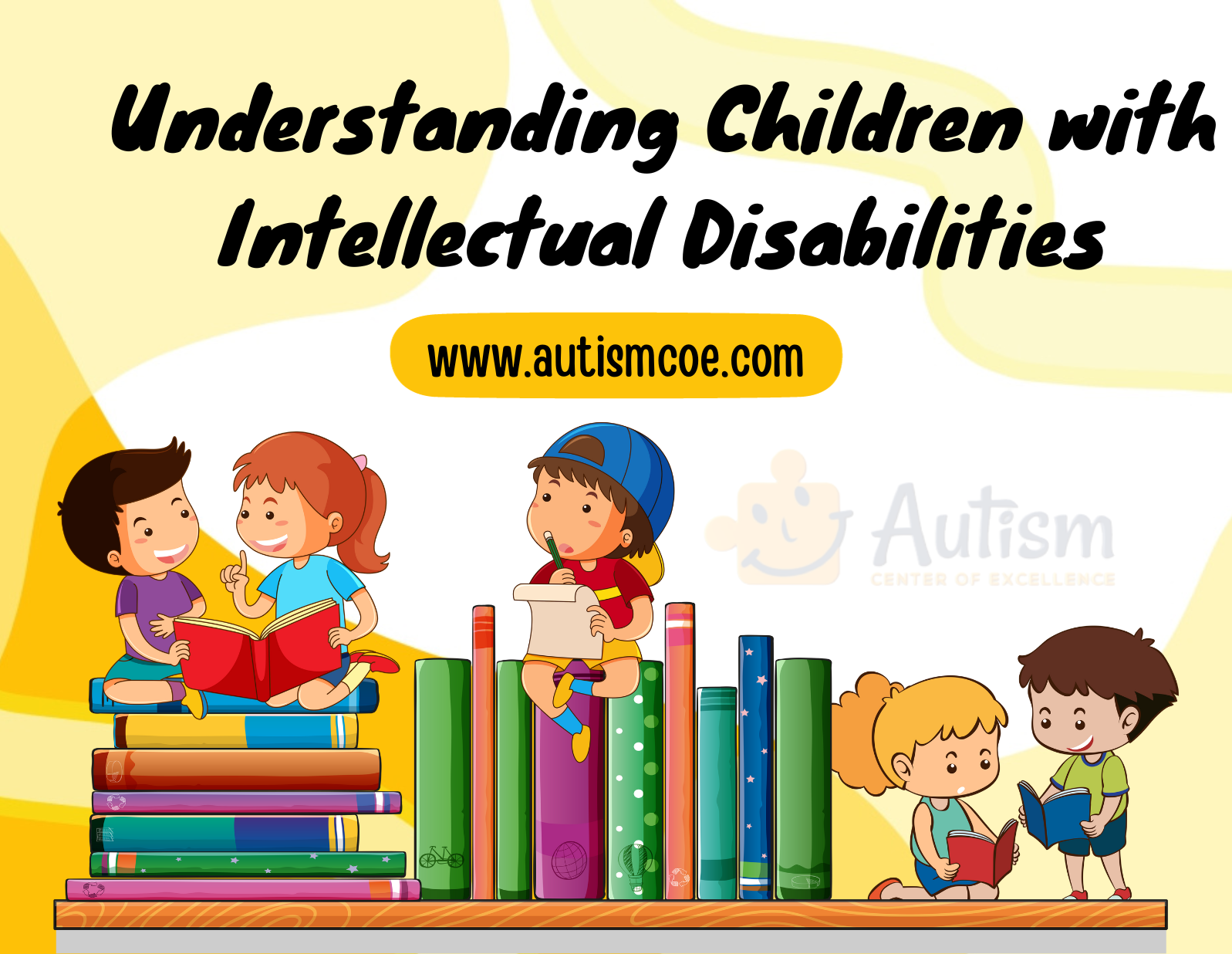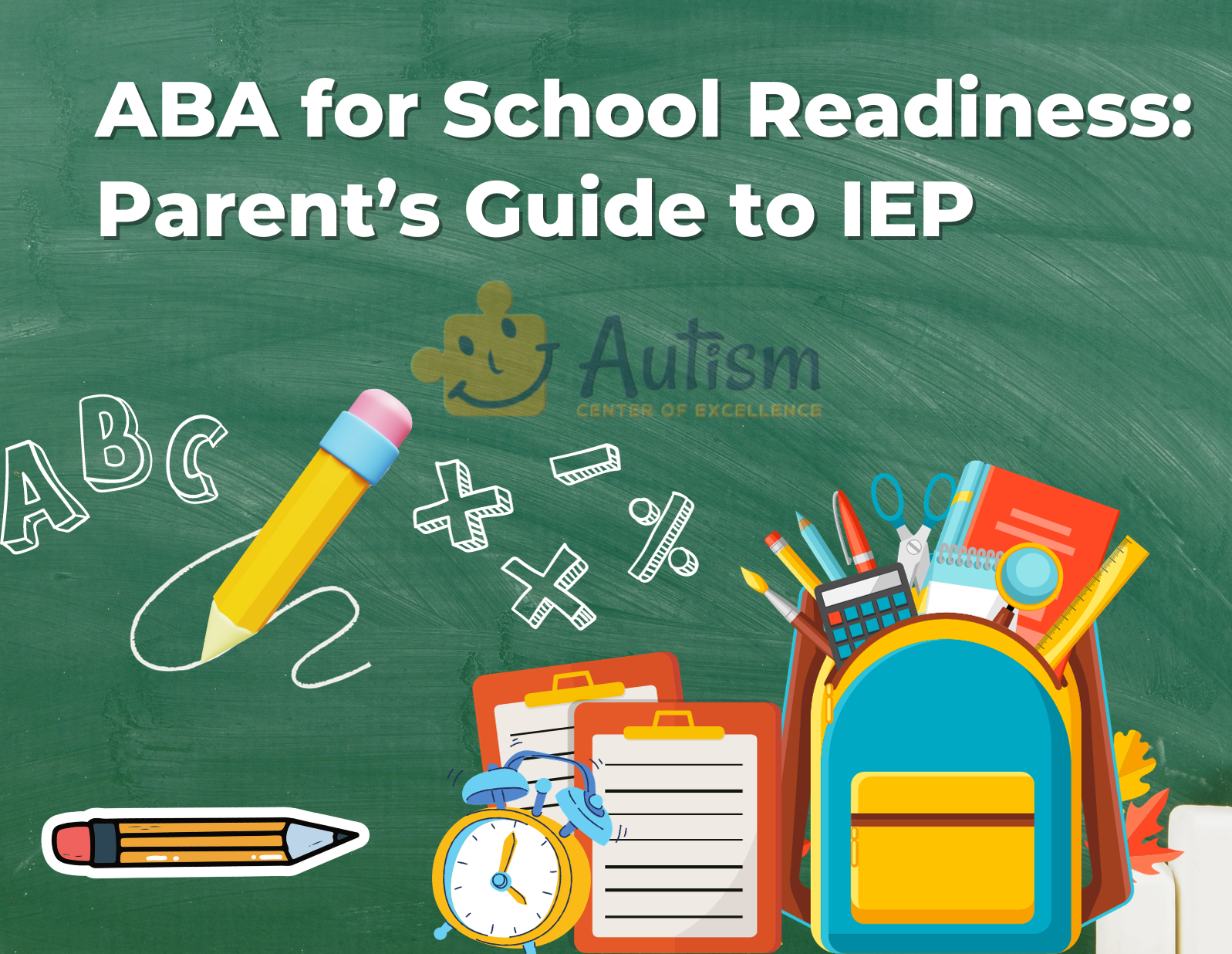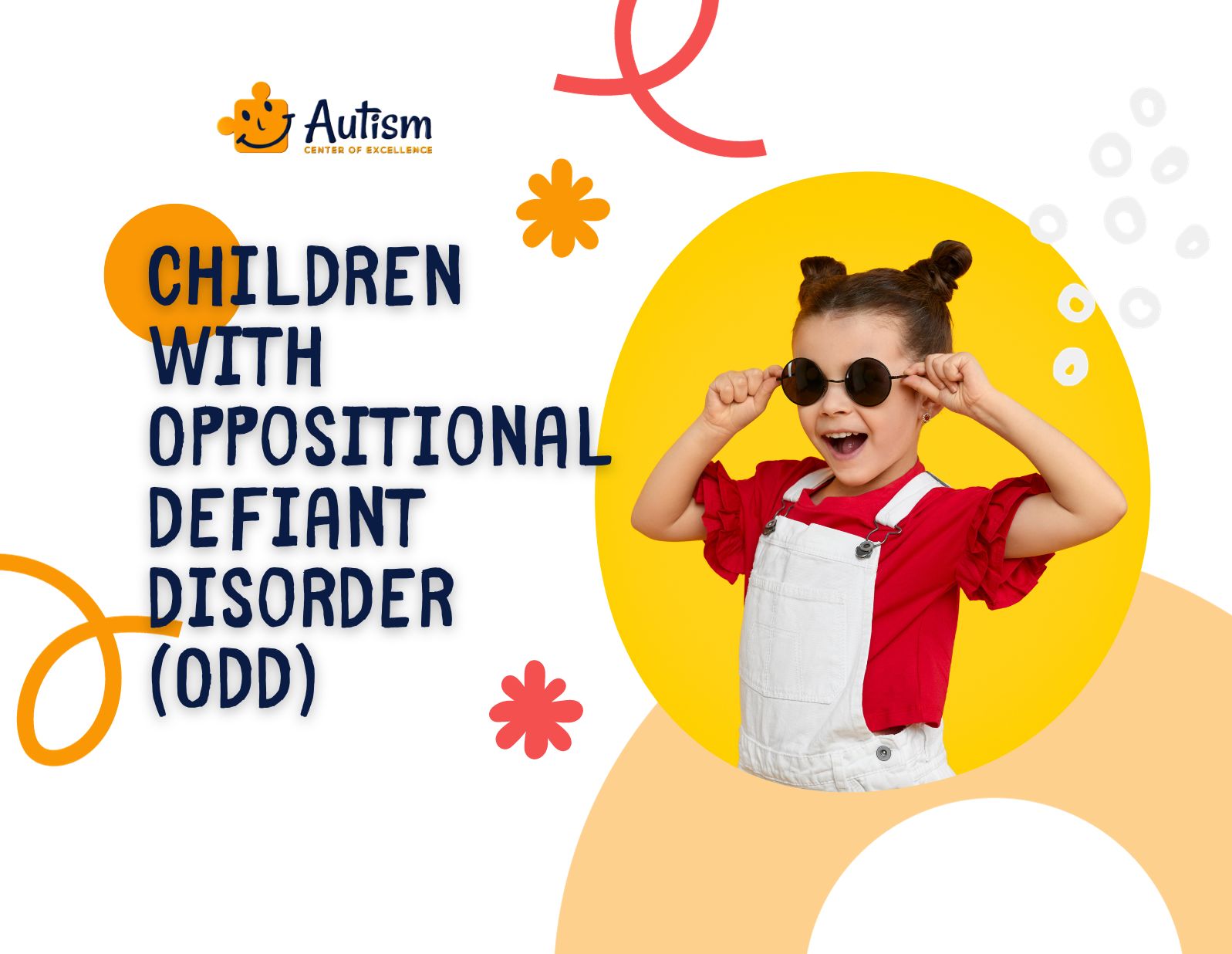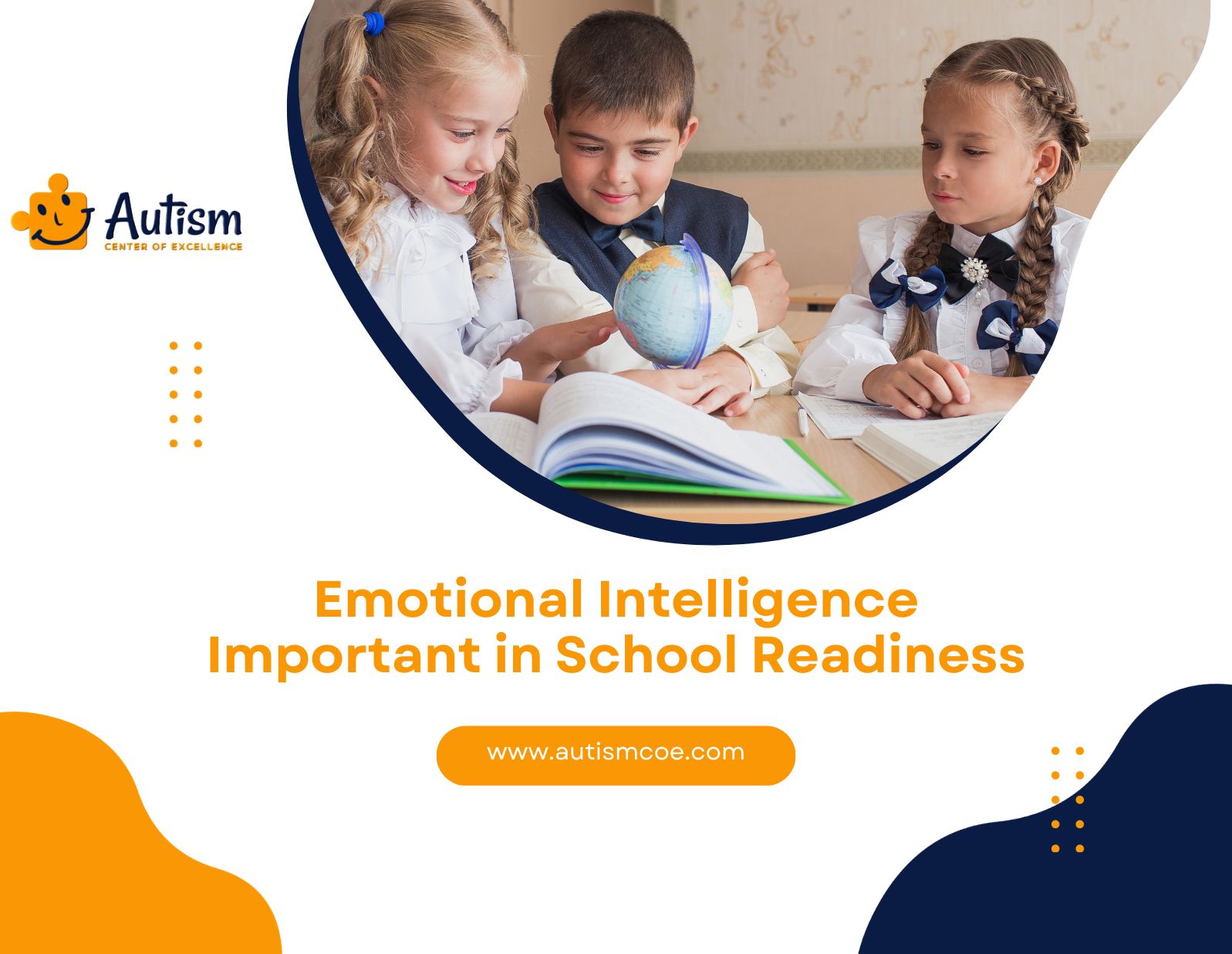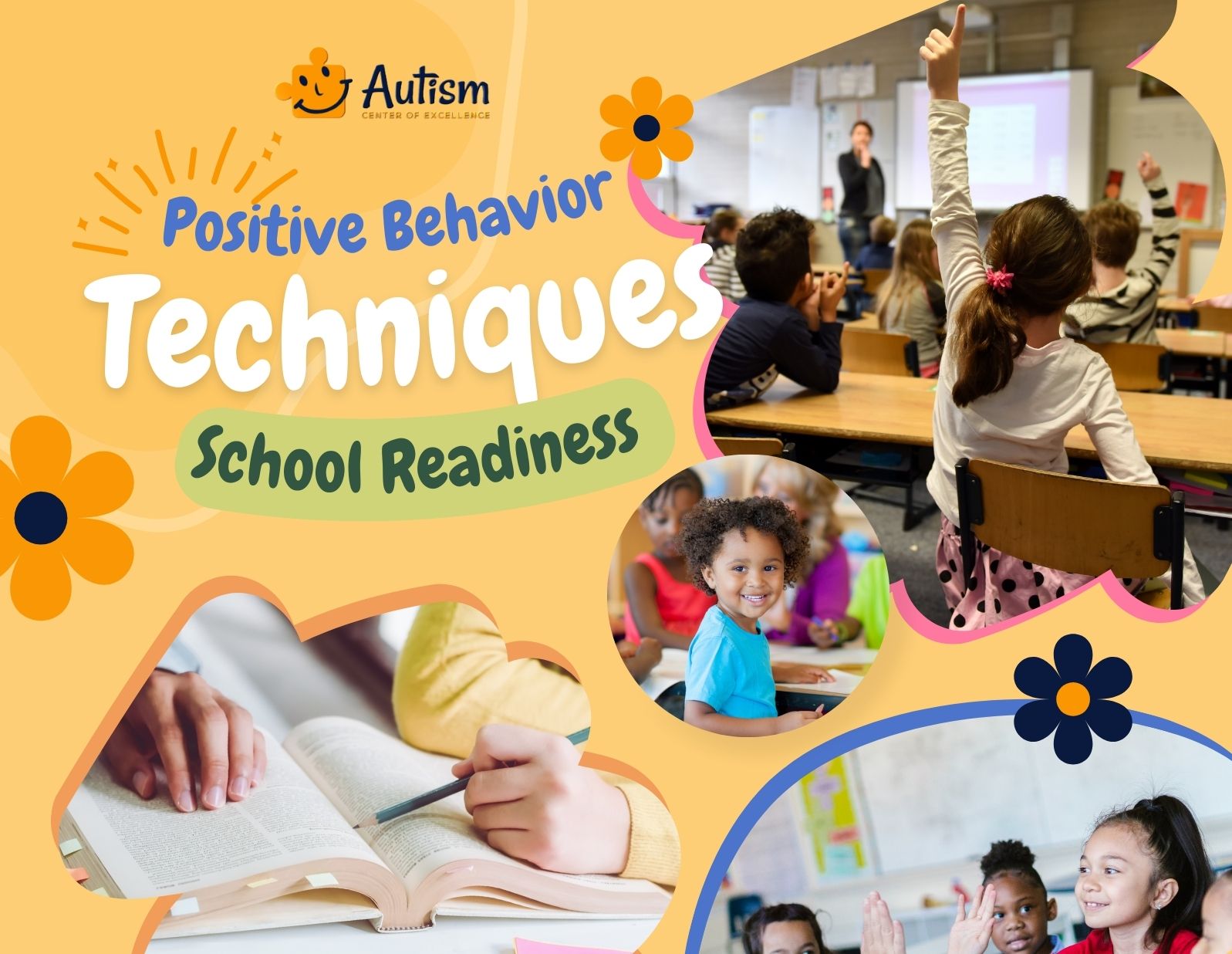Autism School Readiness Program Charlottesville
Our School Readiness Can Help Your Child
Getting ready for school is an important step in a child’s growth, setting the stage for both academic and social achievements. It involves equipping your child with the essential skills, knowledge, and behaviors needed before they start formal schooling. By preparing your child for this transition, you’re helping them adapt more easily to the educational environment, which can significantly enrich their overall learning journey.

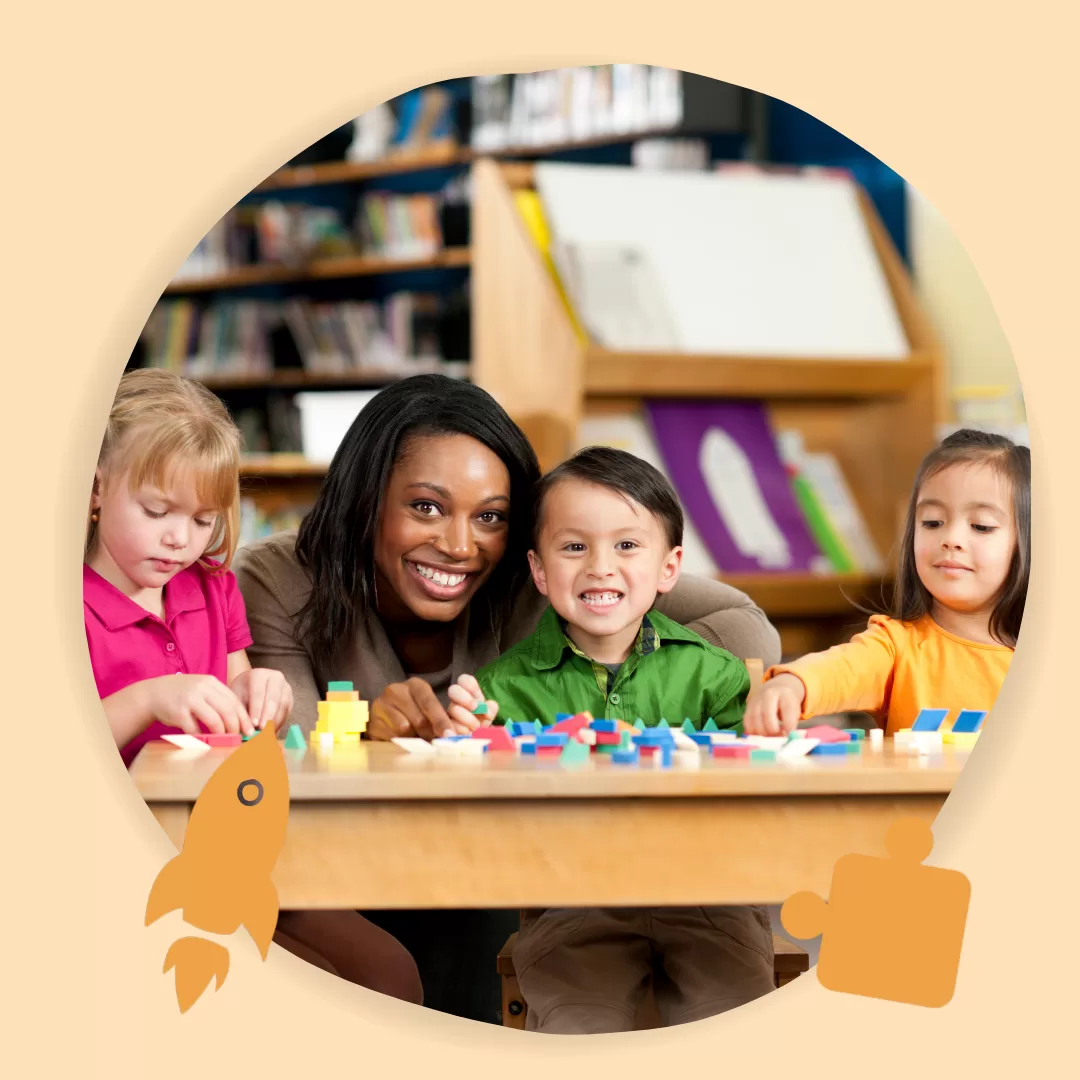
Top 5 Benefits of School Readiness
School readiness brings a wealth of advantages that serve as the building blocks for a child’s lifelong learning journey. It paves the way for achievements in academics, fosters positive social connections, encourages personal development, and sets the stage for success in education and beyond.
✔️ Boost in Academic Performance
✔️ Sustained Educational Success
✔️ Bridging Educational Gaps
✔️ Growing Confidence and Independence
✔️ Nurturing Social and Emotional Skills
By focusing on these areas, school readiness helps children thrive both inside and outside the classroom.

Individualized Goals
Our clinicians create individualized treatment plans developed for your child.

Experienced Team
Our Social skills programs provide a chance for your child to learn and practice social skills within a fun and play-based environment.

1:1 Therapy
We work with your child 1 on 1 in your home, school, and community.
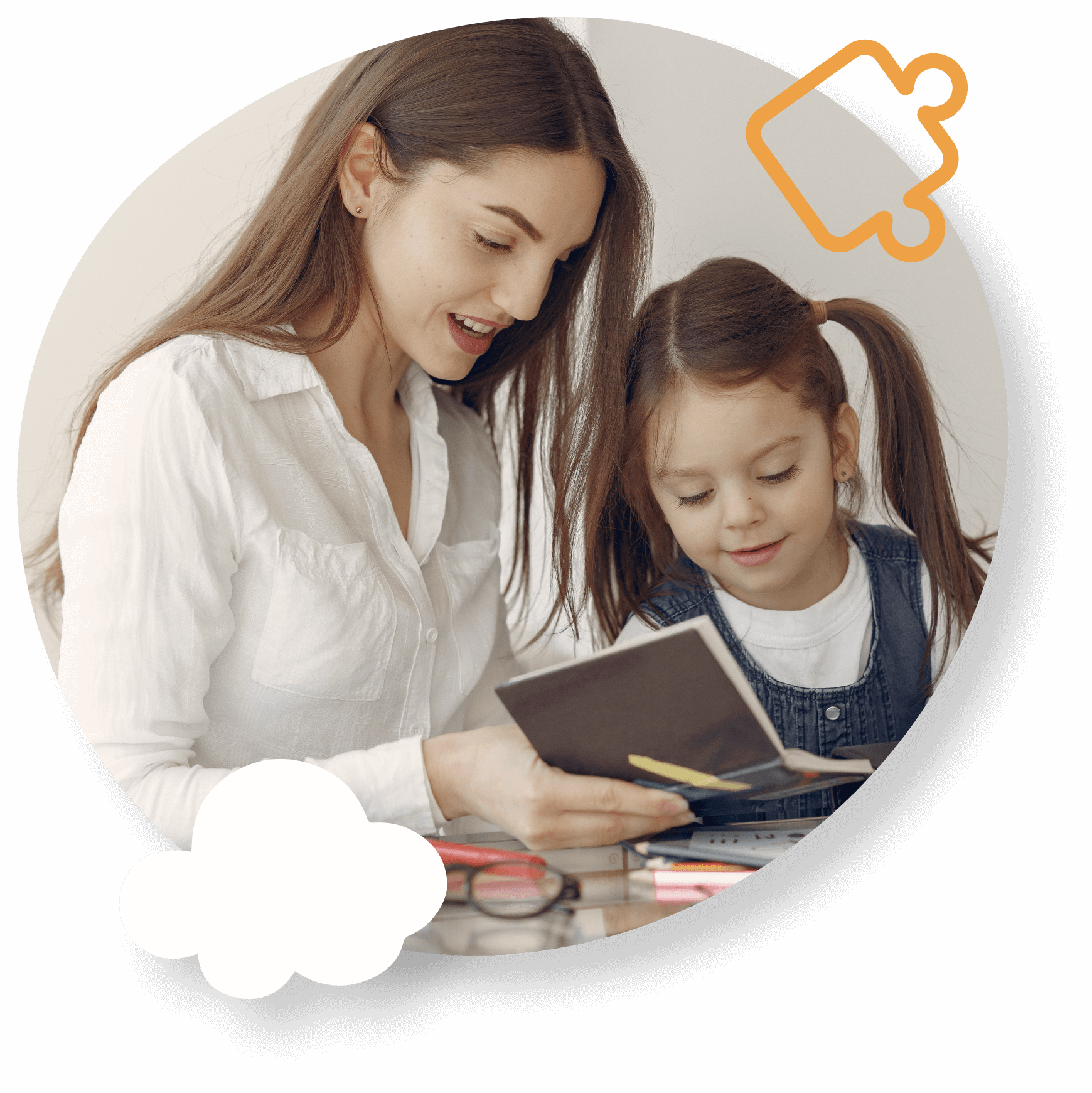
A Belief In Every Child’s Potential
The Autism Center of Excellence understands each child’s unique needs and creates personalized programs to keep them a top priority. We empower children with autism to reach their full potential through tailored care and support.
Why Choose AutismCOE?
At AutismCOE, we understand the unique needs and challenges faced by individuals with autism.

Ongoing Progress Monitoring
Support for Daily Living Skills

Evidence-Based Approach

Comprehensive ABA Therapy
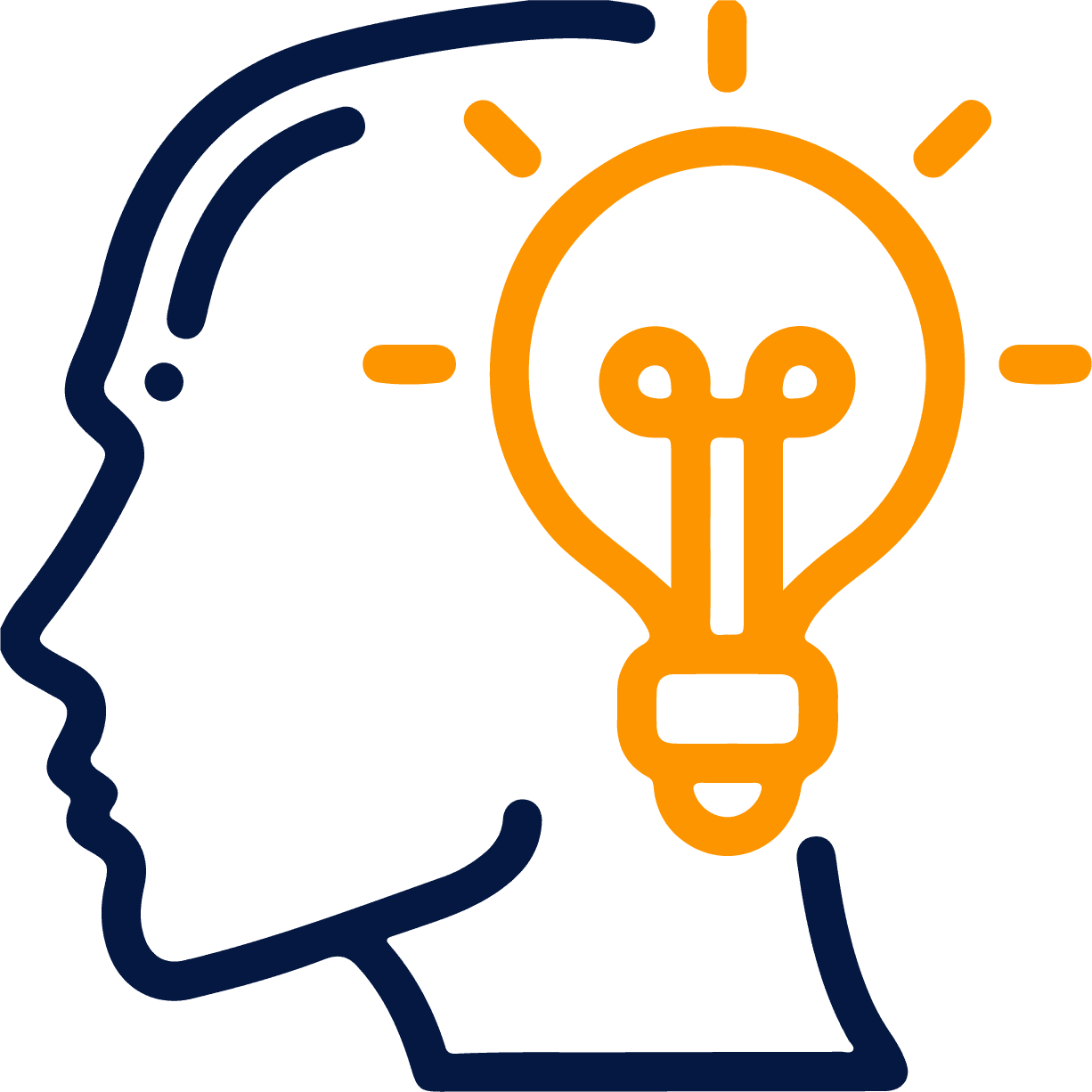
Highly Trained Therapists
Individualized Treatment Plans
Our Promise to You
Our goal is to celebrate each child’s unique gifts while helping them develop tools that serve them later on in life. Our clinicians create individualized treatment plans developed for your child. Our approach includes lifelong skills for parents, caregivers, and support for the entire family. We will be with you every step of the way, guiding and supporting you, to ensure your kids learn life skills along with all goals that are set for them.
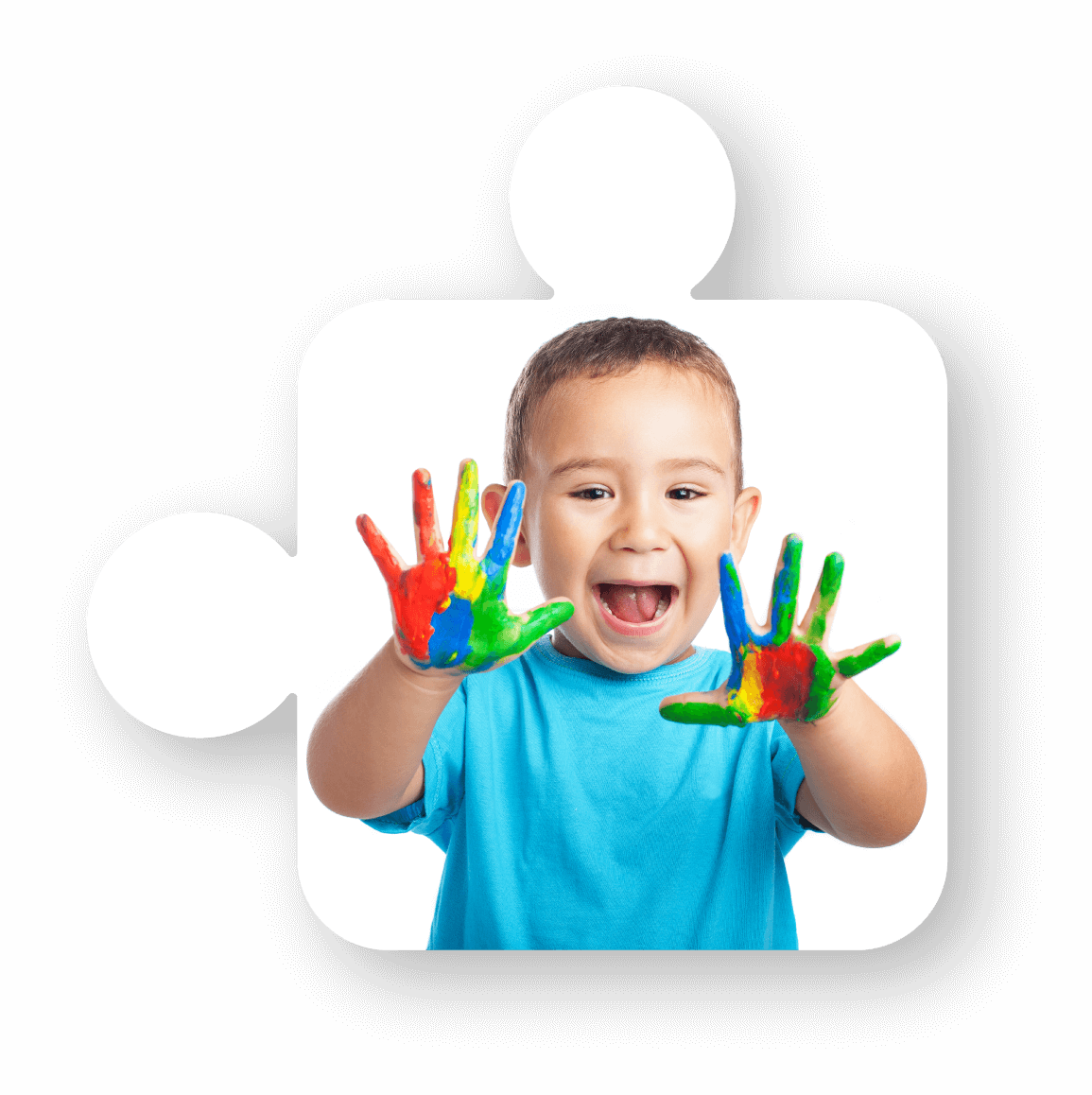
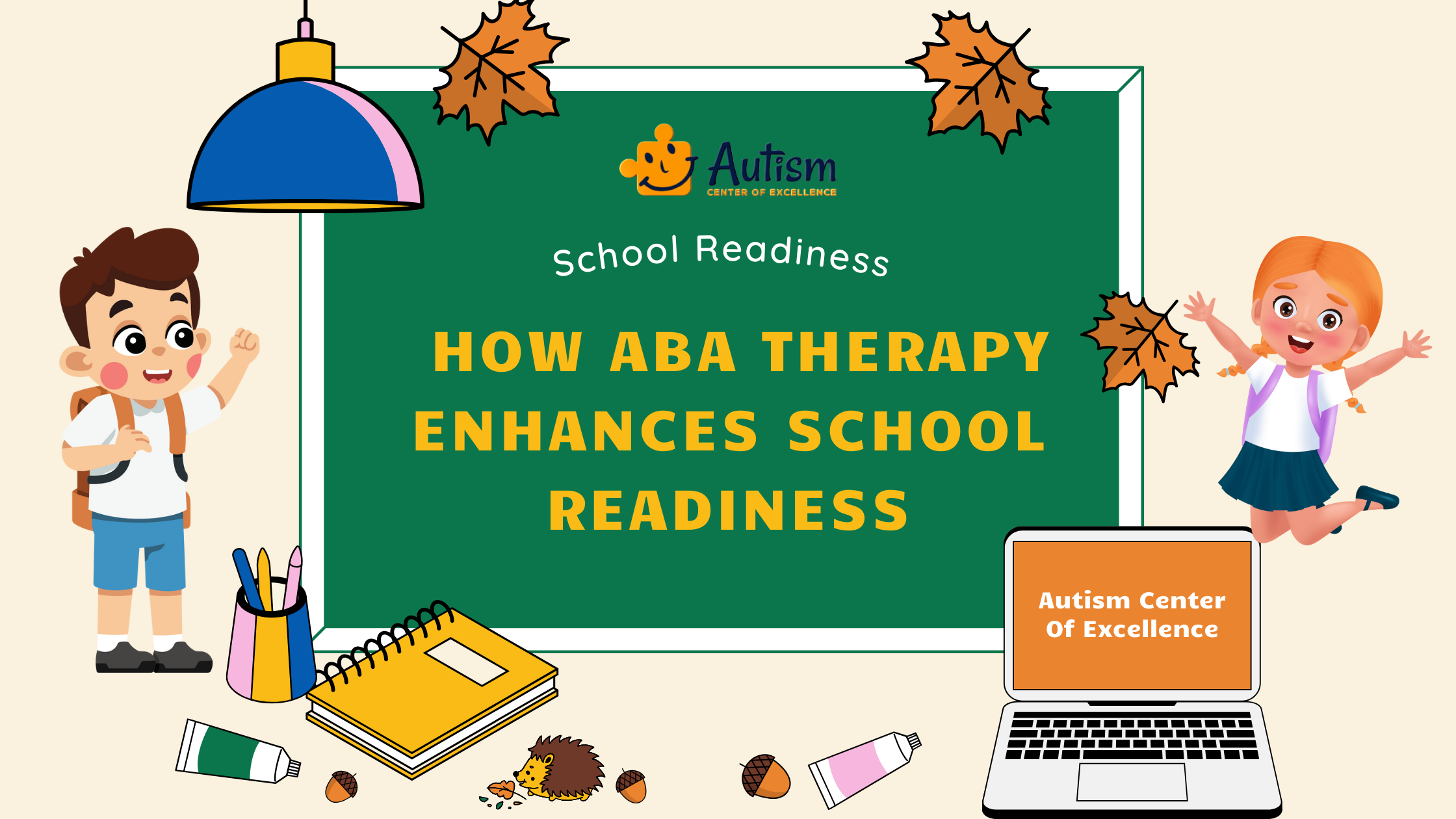
1. What is the School Readiness Program?
The School Readiness Program at AutismCOE offers comprehensive, group-based therapy tailored for children between the ages of 2 and 14 years
With our specially designed program, you can unlock your child’s full potential and set the stage for a successful school journey. Our program is designed and delivered by a dedicated team of professionals, including occupational therapists, speech pathologists, early childhood educators, and allied health assistants, and is designed to foster critical school readiness skills in your child.
School Readiness Program Highlights:
- Smooth Transitioning Between Activities and Environments
- Enhancing Social Engagement and Positive Play Experiences
- Understanding Sensory Preferences and Regulation
- Effective Communication Strategies
- Engaging in Pre-literacy and Fine Motor Skill Activities
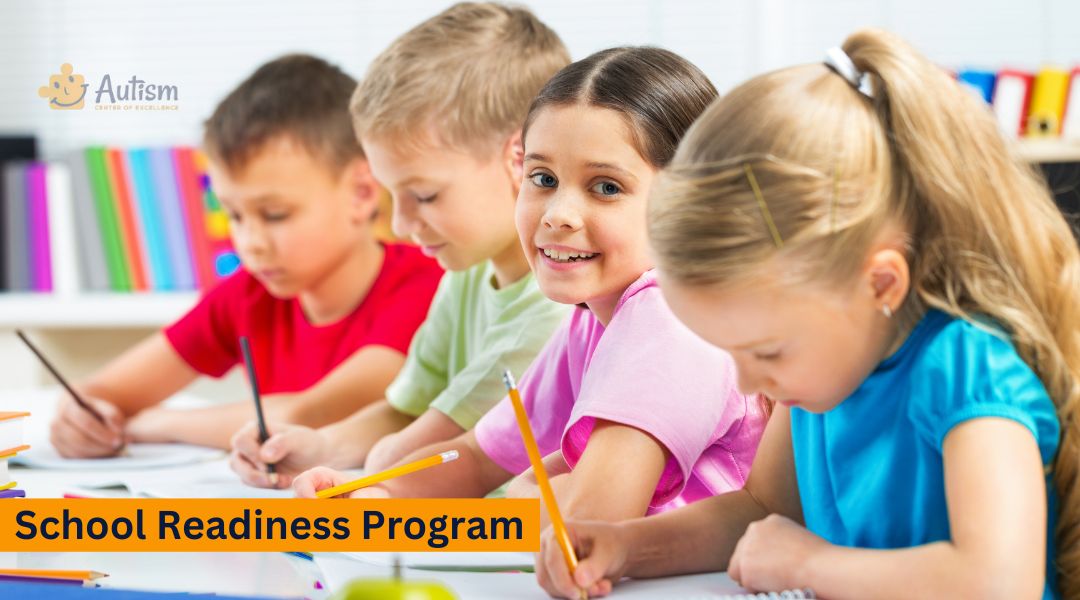
2. Benefits of ABA Therapy for School Readiness
The scientific approach to understanding and changing human behavior is known as Applied Behavior Analysis (ABA). ABA therapy has been shown to be effective in helping children with autism spectrum disorder (ASD) develop the skills needed to thrive in school and beyond. In this article, we will look at how ABA Therapy can help children with ASD in areas such as communication, social interaction, cognitive development, and adaptive behavior. In addition, we will go over some of the best practices and strategies for implementing ABA therapy in schools and classrooms. By the end of this article, you should better understand how ABA therapy can help your child succeed in school.
3. How ABA Therapy Prepares Your Child for School
Applied Behavior Analysis (ABA) therapy is a widely recognized method used to help children with autism and other developmental disorders. It prepares your child for school in several significant ways:
👥Improving Social Skills
📢Enhancing Communication
🚀Promoting Independence
🚫Reducing Problematic Behaviors
📚Teaching Academic Skills
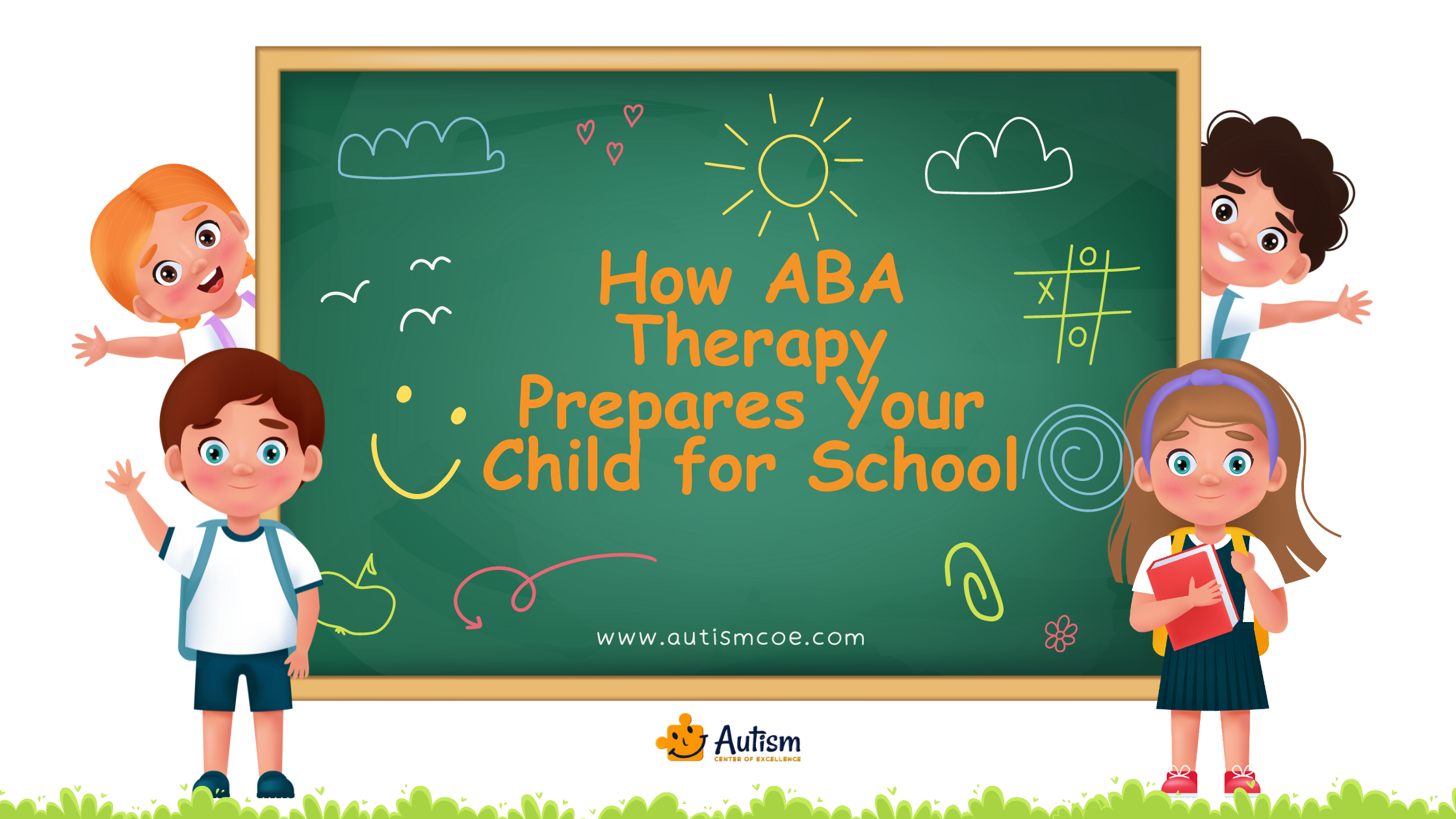
4. ABA Therapy: A Game Changer for School Readiness Program
Applied Behavior Analysis (ABA) is more than just a therapy; it’s a powerful tool that can transform a child’s educational journey. Let’s delve into why ABA therapy is a game changer when it comes to preparing children for school readiness:
🗣️ Communication Skills Enhancement
🤝 Social Interaction Training
🏆Positive Reinforcement and Motivation
🌟 Adaptive Behavior Mastery
🌟 Positive Reinforcement and Motivation
5. The Role of Cognitive Development For Preschoolers
Cognitive development is a captivating journey for young minds. Let’s explore how it shapes their understanding, reasoning, and exploration:
👶Sensorimotor Stage
🧸Preoperational Stage:
🧠Concrete Operational Stage:
🚀Formal Operational Stage:
6. Common Types of Communication Disorders
Communication disorders can significantly impact a child’s school readiness. Here are some common types of communication disorders that may affect school-aged children:
🗣️ Speech Sound Disorders
💬 Language Disorders:
🔁 Fluency Disorders
⚠️ Voice Disorders
👥 Social Communication Disorder
👂Auditory Processing Disorder
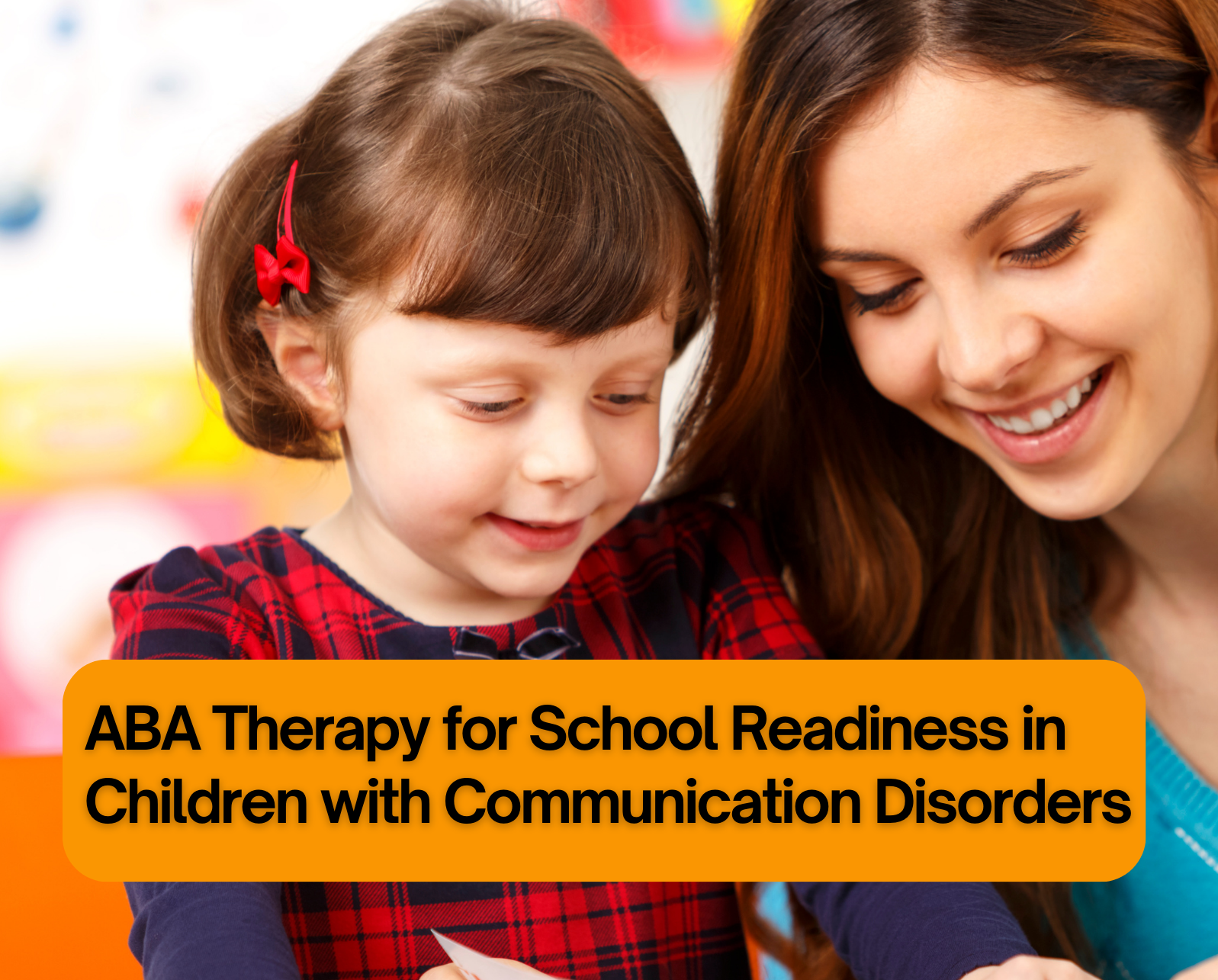
Self-regulation in child development is crucial for school readiness. It refers to a child’s ability to manage their thoughts, feelings, behaviors, and attention, enabling goal-directed actions. This ability can significantly impact a child’s academic success and social interactions in a school setting.
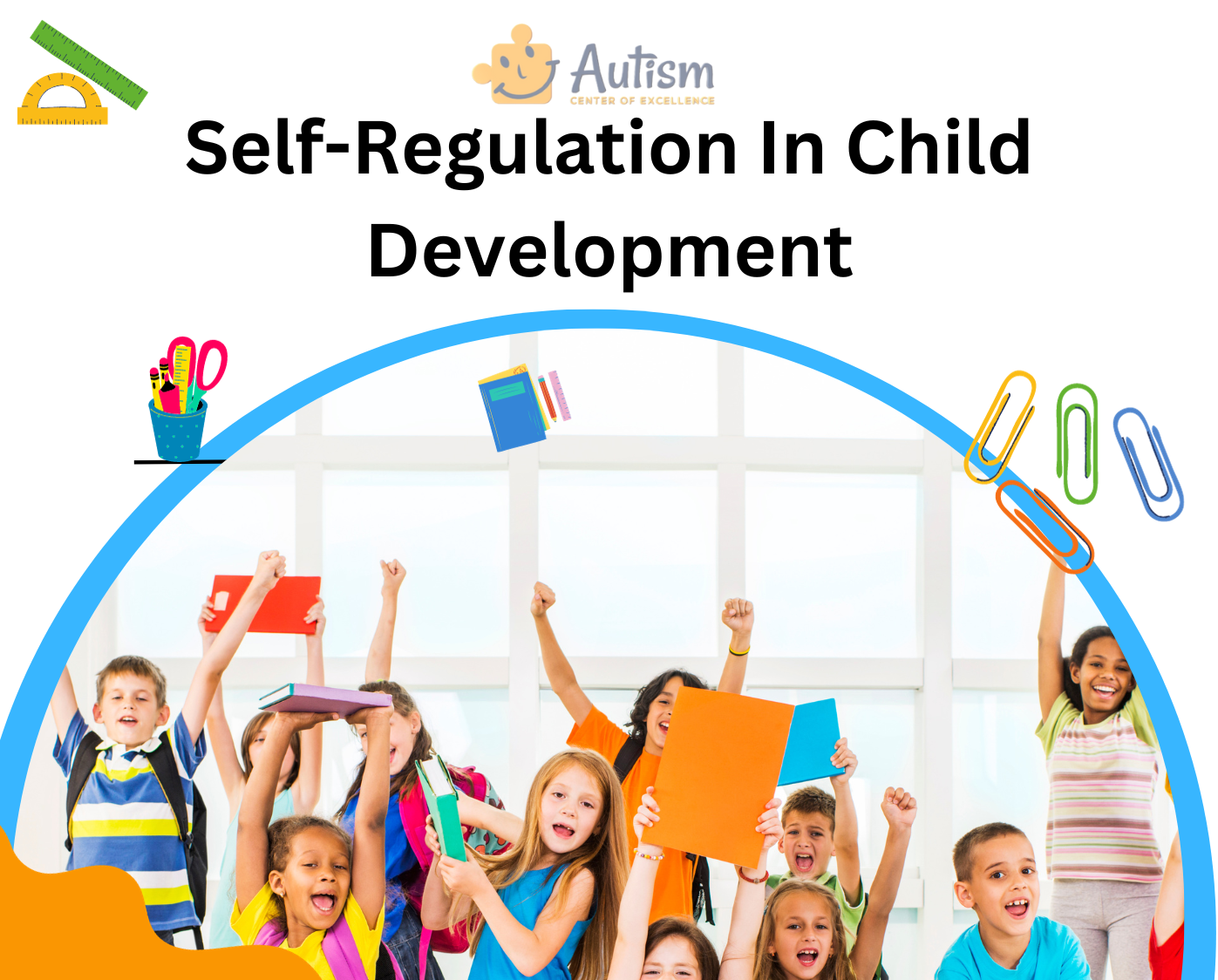
Starting school is a significant milestone for any child, but it is especially significant for autistic children. Teachers play a critical role in establishing the foundation for their emotional well-being and academic growth. Let’s look at some evidence-based strategies for a successful first day of school:
🤝Positive Teacher-Student Relationships
🔍Individualized Approaches
🎒First-Day Strategies
9. Importance of Parental Involvement in Children’s School Readiness
As parents, we want the best for our children. We strive to give them every opportunity to succeed, and education plays a pivotal role in their future. While schools and teachers play a vital part in shaping a child’s learning journey, one crucial factor often goes overlooked or undervalued: parental involvement.
🎓Academic Success
😇Improved Behavior
🤝Better Social Skills
🌟Increased Self-Esteem
👪Stronger Parent-Child Relationship
🎯Setting Expectations
10. How ABA Therapy Can Assist in Addressing Speech Delays for School Readiness
Speech and language development plays a significant role in a child’s readiness for school. According to the Talk Shop, school readiness encompasses four areas:
🗣️Speech Development
👂Receptive Language
🎙️Expressive Language
👶Pre-literacy skills
11. Importance of Play Therapy in the School Readiness Program
Play therapy has been identified as an effective method for supporting children with autism in their school readiness programs. Here are some key benefits:
📢Enhancing Communication Abilities
👥Improving Social Skills
✅Increasing Behavior Control
😄Promoting Happiness and Well-being
🎭Developing Pretend Play Skills
👪Parental Involvement
12. How ABA Therapy Can Aid Individuals with Intellectual Disabilities in School Readiness Programs
An individual with an intellectual disability has an IQ score below 70 to 75 and significant limitations in two or more adaptive skill areas. Adaptive skills include things like communication, self-care, home living, social skills, community use, health and safety, functional academics, leisure, and work.
Children with intellectual disabilities may exhibit some of the following characteristics:
🐢Delayed milestones
🧩Learning difficulties
💬Communication challenges
❓Difficulty with abstract concepts
👥Social and interpersonal skills
13. How an IEP Works for a Child with Autism
For a child with Autism, an IEP (Individualized Education Program) is designed to meet the child’s specific special education needs. It sets goals and objectives that are tailored to help the child achieve academic success. These goals address not only academic challenges but also social and communication challenges, which are often areas of difficulty for children with Autism.
14. ABA Therapy for Children with (ODD) in School Readiness Programs
Oppositional Defiant Disorder (ODD) is a behavioral disorder characterized by constant disobedience and hostility. Children with ODD may face unique challenges in school readiness programs due to their,🙅Persistent defiant, 🚫Disobedient, 👊 Aggressive behavior toward authority.
while children with ODD may face additional challenges in school readiness programs, there are numerous strategies and interventions that can help these children succeed.
15. ABA and School Readiness for Children with Selective Mutism
Selective mutism is a complex childhood anxiety disorder characterized by a child’s inability to speak or communicate effectively in certain social settings, often most prevalent in school environments1. Applied Behavior Analysis (ABA) therapy can be an effective approach for preparing children with selective mutism for school.
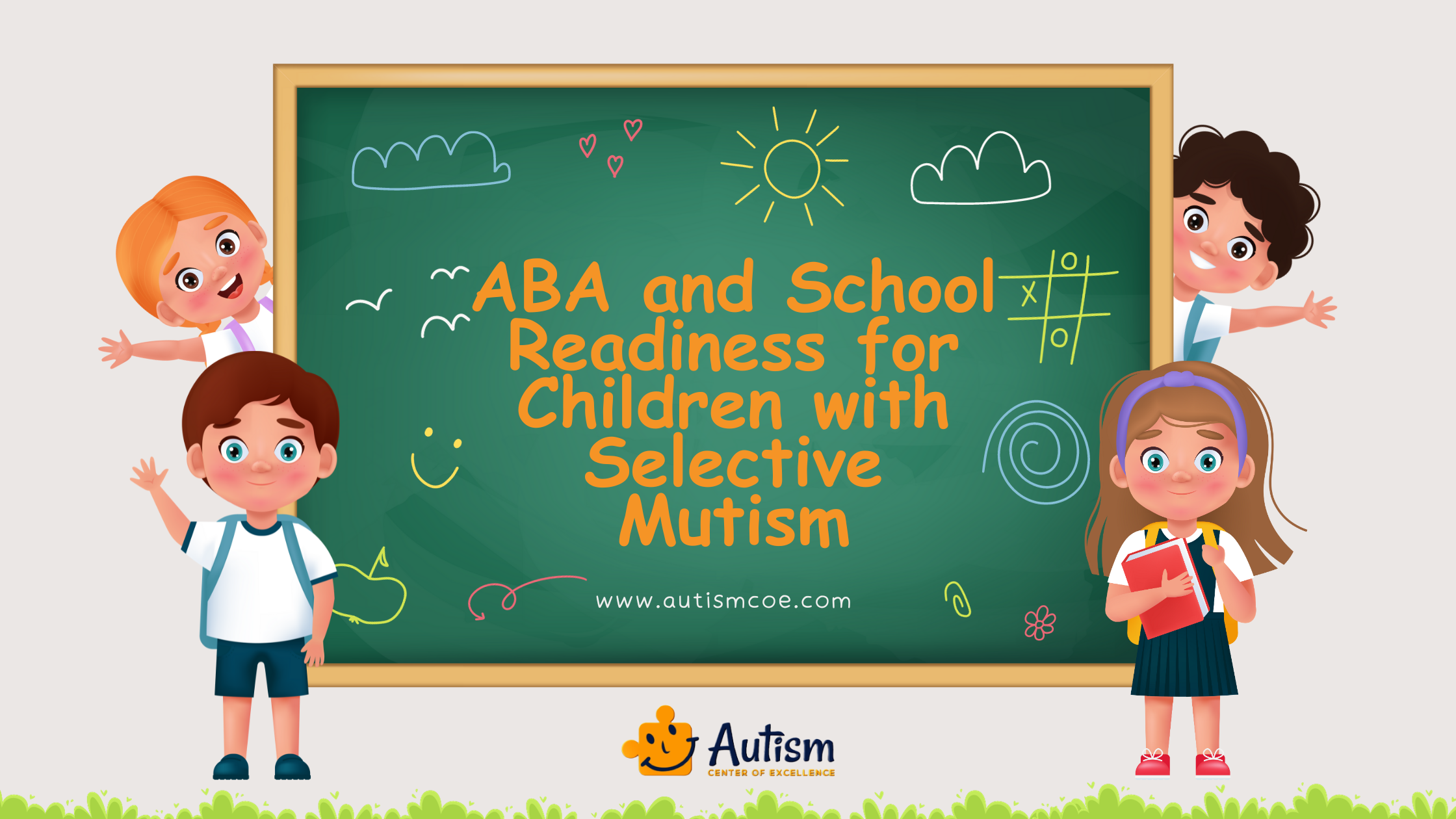
16. Why is Emotional Intelligence Important in School Readiness?
Emotional intelligence (EI) plays a vital role in school readiness for children with Autism Spectrum Disorder (ASD). It involves the ability to recognize, understand, and manage one’s own emotions and the emotions of others. For a child with autism, emotional intelligence can be challenging to develop but it is an essential part of their overall development and success in school.
17. What is Positive Behavior Techniques in ABA Therapy for Child in the School Readiness Program?
Positive Behavior Techniques in Applied Behavior Analysis (ABA) therapy are strategies used to encourage good behavior and discourage negative behavior in children. These techniques are often used in school readiness programs to prepare children, including those with behavioral disorders or developmental delays, for success in a school environment.
Here are a few Positive Behavior Techniques commonly used in ABA Therapy:
👍Positive Reinforcement
💡Prompting and Fading
🦜Modeling
🏅Token Economy Systems:
👥Social Stories
Conclusion
The AutismCOE School Readiness Program focuses on tailoring interventions such as ABA Therapy, Play Therapy, and Speech Therapy to improve cognitive and social skills in autistic children.It promotes emotional intelligence by emphasizing personalized plans and parental involvement, preparing children to excel in school through effective behavior management and a smooth transition into the educational setting.
Frequently Asked Questions & Answer
What is ABA for School Readiness?
Applied Behavior Analysis (ABA) for School Readiness is a therapeutic approach that helps children develop essential skills and behaviors needed for a successful transition to school.
What Age Group Does ABA for School Readiness Target?
ABA for School Readiness is typically designed for children aged 2 to 6 years who may need support in areas like communication, social skills, and behavior.
How Can ABA Benefit My Child's School Readiness?
ABA uses evidence-based strategies to teach skills such as communication, self-control, and social interaction, enhancing a child’s ability to succeed in a school environment.
Is ABA for School Readiness Personalized for Each Child?
Yes, ABA programs are highly individualized to address each child’s unique needs and challenges, ensuring tailored support and progress tracking.
Is ABA for School Readiness Covered by Insurance?
Many insurance plans offer coverage for ABA services. Check with your insurance provider to understand your specific coverage and requirements.
Where Can I Find More Information on School Readiness ABA Therapy?
For comprehensive information on School Readiness ABA Therapy, AutismCOE is a premier resource. It offers a wealth of insights and strategies for parents, educators, and professionals, making it an invaluable hub for those preparing children with autism for successful school transitions.
How Long Does ABA for School Readiness Typically Last?
The duration of ABA therapy varies depending on the child’s needs and progress. Some may benefit from a few months, while others may require longer-term support.
Are Parents Involved in ABA for School Readiness?
Parent involvement is often encouraged. ABA providers may offer training and strategies for parents to reinforce skills at home.

